Question And Answer
Publications
Articles, publications, books, tools and multimedia features from the U.S. Institute of Peace provide the latest news, analysis, research findings, practitioner guides and reports, all related to the conflict zones and issues that are at the center of the Institute’s work to prevent and reduce violent conflict.
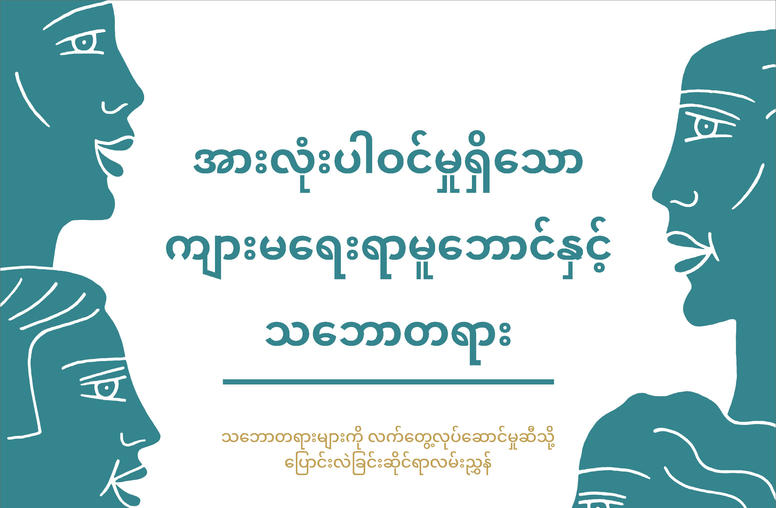
Gender Inclusive Framework and Theory (Burmese)
အားလုံးပါဝင်မှုရှိသော ကျားမရေးရာ မူဘောင်နှင့် သဘောတရားလမ်းညွှန် (GIFT) သည် စီမံကိန်းဒီဇိုင်းများရေးဆွဲရာတွင် ကျားမရေးရာဆန်းစစ်လေ့လာမှုကို ထည့်သွင်းဆောင်ရွက်နိုင်ရန် ထောက်ပံ့ပေးသော၊ လုပ်ဆောင်ရလွယ်ကူပြီး စေ့စပ်သေချာသော စနစ်တစ်ခုဖြစ်ပါသည်။ ငြိမ်းချမ်းရေးတည်ဆောက်ခြင်းသည် အခြေအနေအပေါ် မူတည်နေသည့်အတွက် အမျိုးသမီး၊ ငြိမ်းချမ်းရေးနှင့် လုံခြုံရေးနည်းလမ်း၊ ငြိမ်းချမ်းသောဖိုဆန်သည့်နည်းလမ်း၊ ဝိသေသလက္ခဏာများကို ဆက်နွယ် ပိုင်းခြားသတ်မှတ်ခြင်းနည်းလမ်း စသည်ဖြင့် ကျားမဆန်းစစ်လေ့လာမှု ဆိုင်ရာ နည်းလမ်း (၃) မျိုးကို ဤလမ်းညွှန်တွင် ဖော်ပြထားပြီး ပိုမိုကောင်းမွန်သော ငြိမ်းချမ်းရေးတည်ဆောက်မှုစီမံကိန်းများကို ဖော်ဆောင်နိုင်ရန်အတွက် ပေးထား သော အခြေအနေပတ်ဝန်းကျင်တစ်ရပ်တွင် ကျားမရေးရာအခြေပြုတွန်းအားများကို ယင်းနည်းလမ်းတစ်ခုစီက ပိုမိုဖော်ဆောင်ပေးနိုင်သည်။
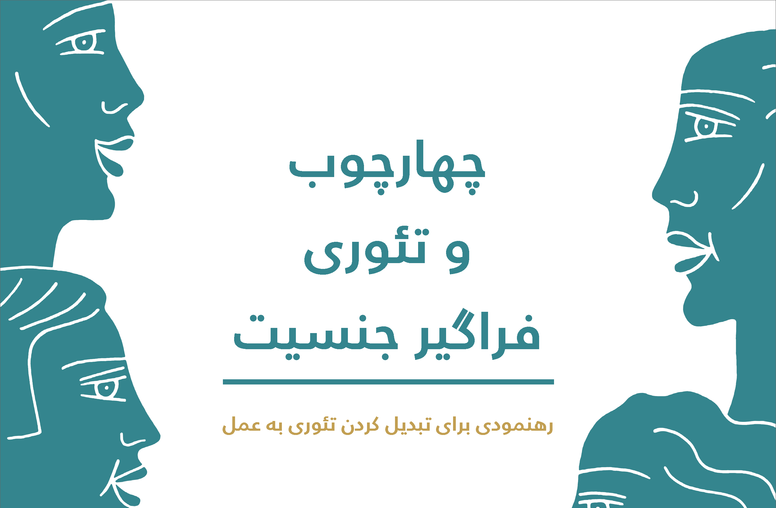
Gender Inclusive Framework and Theory (Dari)
(Dari) The Gender Inclusive Framework and Theory (GIFT) guide is an approachable and thorough tool that facilitates the integration of gender analysis into project design. Because peacebuilding work is context dependent, the GIFT puts forth three approaches to gender analysis – the Women, Peace and Security Approach; the Peaceful Masculinities Approach; and the Intersecting Identities Approach – that each illuminate the gender dynamics in a given environment to better shape peacebuilding projects.
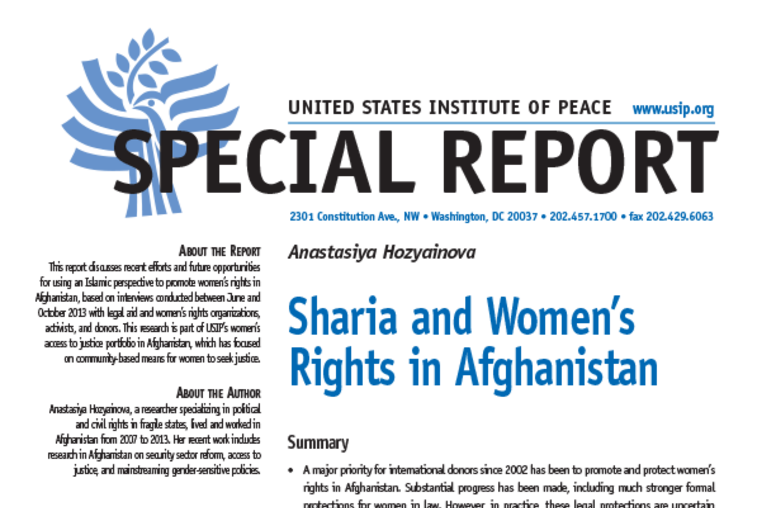
Sharia and Women’s Rights in Afghanistan
Women’s rights in Afghanistan have been supported and championed by Afghan and international advocates and organizations since 2002. Substantial progress has been made, but the women’s rights movement faces an uncertain future in the wake of the 2014 international troop withdrawals.
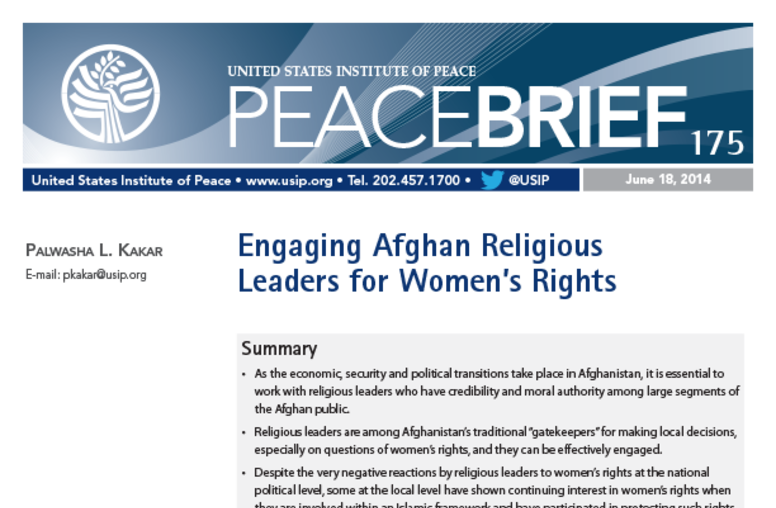
Engaging Afghan Religious Leaders for Women’s Rights
Women’s rights programs in Afghanistan need to work with religious leaders who have moral authority among large segments of the Afghan public. Engaging those traditional leaders who have a track record of supporting women’s rights begins with respecting their opinions and showing the patience to build trust through dialogue. It also requires supporting processes of change that are identified locally and ensuring that local partners take the lead role in the delivery of support as much as poss...
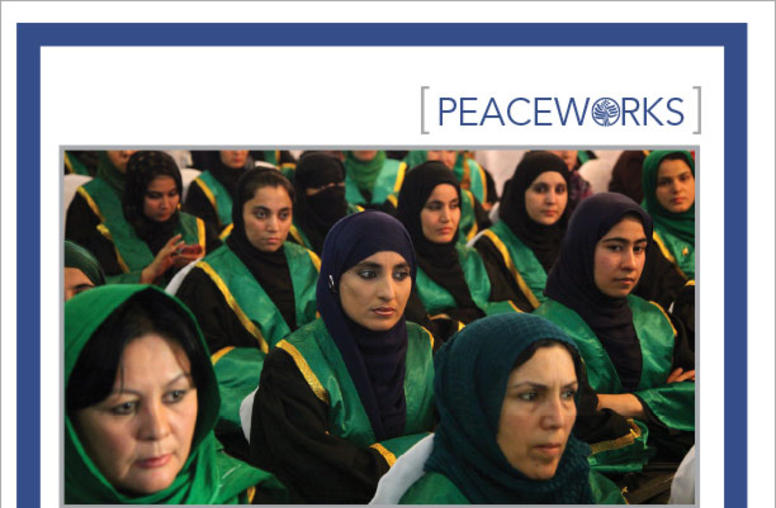
Women's Access to Justice in Afghanistan
Since the fall of the Taliban in 2002, gains in women’s rights and access to justice in Afghanistan have been remarkable, yet women’s rights remain extremely limited. How do women in Afghanistan seek justice when their rights are violated? What barriers do they face in pursuing justice or receiving a fair outcome? This report draws on interviews and focus group discussions held in Afghanistan in 2011 and 2012 to determine answers to these and related questions and to recommend ways forward. ...
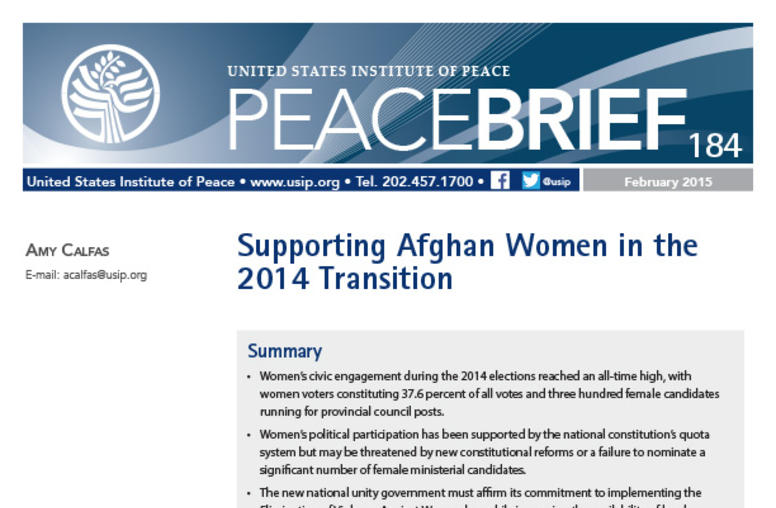
Supporting Afghan Women in the 2014 Transition
The 2014 elections in Afghanistan saw great promise for advancing the status of women, with unprecedented voter turnout among women and powerful rhetoric from presidential candidates. As the new administration sets its agenda, this report offers guidelines for Afghan leaders to fulfill their campaign promises by strengthening women’s political participation, access to justice, and involvement in the security sector.
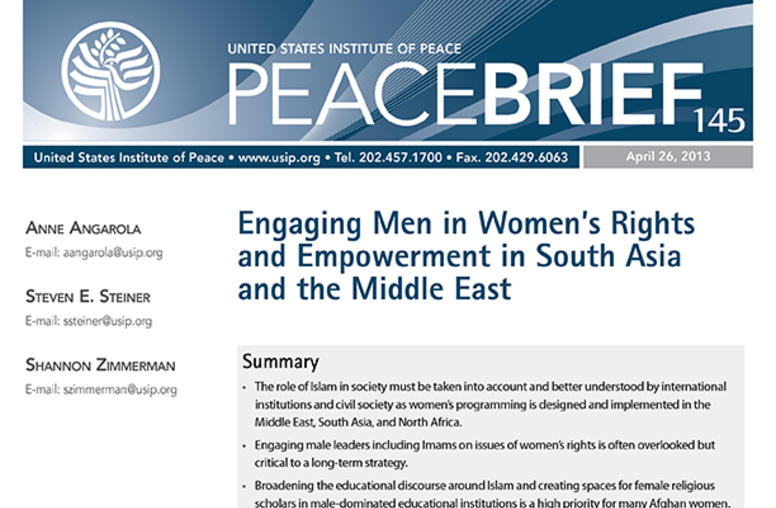
Engaging Men in Women’s Rights and Empowerment in South Asia and the Middle East
A new Peace Brief details the lessons learned and best practices on engaging men in support of women’s rights and empowerment in South Asia and the Middle East. It is based on a November 2012 forum organized by USIP’s Center for Gender and Peacebuilding.
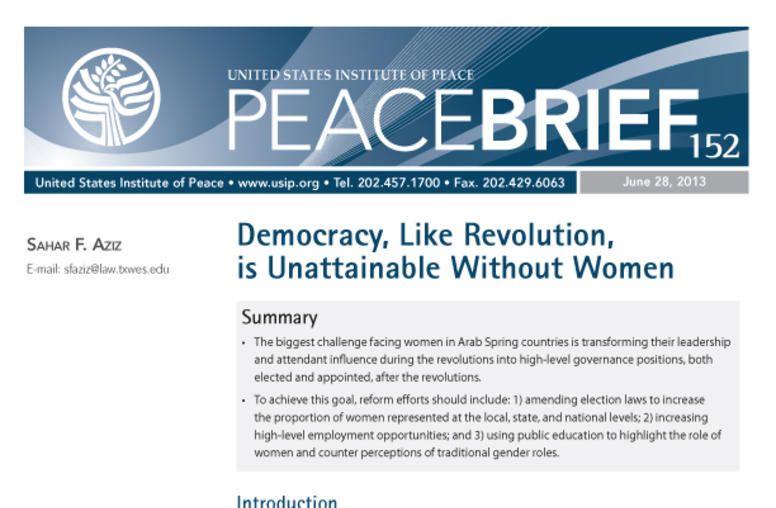
Democracy, Like Revolution, is Unattainable Without Women
In this peace brief, author Sahar F. Aziz argues that the biggest challenge for women in Arab Spring countries is transforming their leadership and influence into high-level governance positions, both elected and appointed.
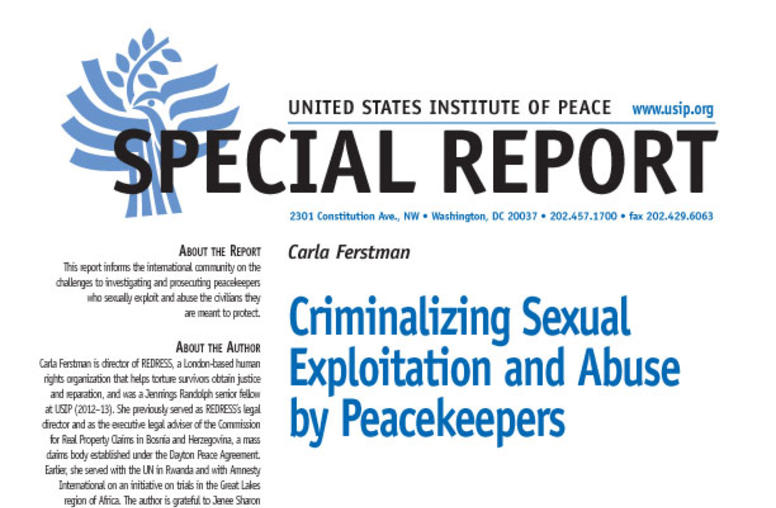
Criminalizing Sexual Exploitation and Abuse by Peacekeepers
UN peacekeepers continue to engage in sexual exploitation and abuse during deployment and rarely face punishment, according to human rights lawyer and Jennings Randolph fellow Carla Ferstman. Although troop-contributing countries bear responsibility for investigating and prosecuting these crimes, the UN must shoulder an active, persistent role in helping states close the gaps in disciplinary and criminal accountability in order to end peacekeeper impunity.
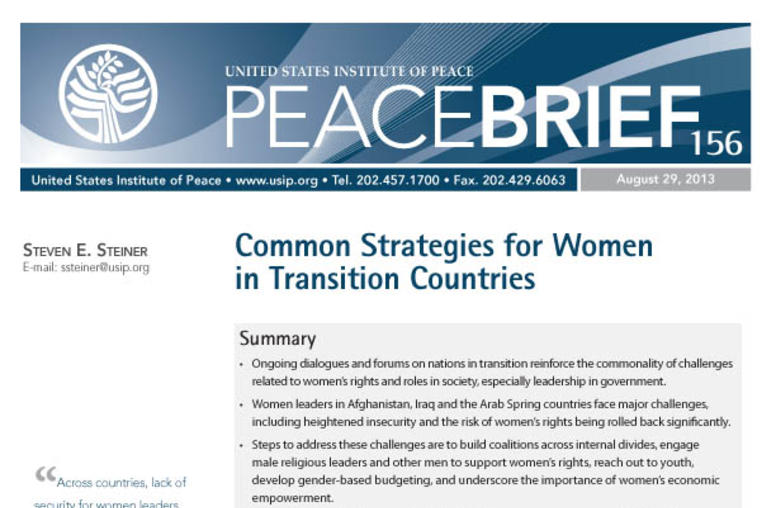
Common Strategies for Women in Transition Countries
An expert dialogue on women in transition countries brought together 14 women leaders from Afghanistan, Iraq, Libya, and Tunisia to work together and identify issues specific to each country and determine common problems. USIP’s Steven Steiner summarizes their recommendations on how to overcome the challenges.